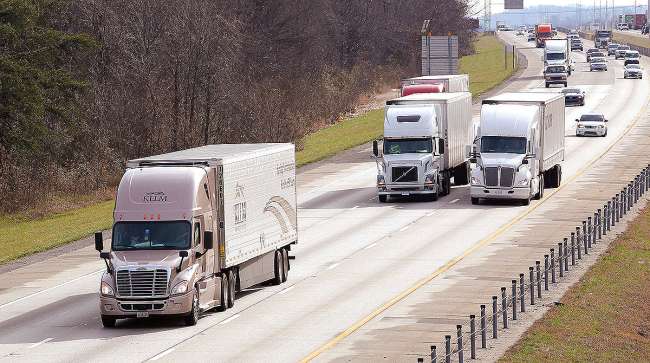Senior Reporter
FMCSA to Immediately Expand Remote Carrier Compliance Reviews During Pandemic

[Ensure you have all the info you need in these unprecedented times. Subscribe now.]
The Federal Motor Carrier Safety Administration has announced plans to immediately expand the use of remote motor carrier safety compliance reviews during the COVID-19 pandemic.
In new guidance issued May 20, the agency said the off-site compliance reviews will “leverage all available technology to access information and records and thus limit exposure risk for the regulated community and safety investigators.”
The expanded guidance is intended to provide clarity to motor carriers, FMCSA said. It will remain in effect until the revocation of the presidentially declared COVID-19 national emergency, the agency said.
FMCSA Guidance on Leveragin... by Transport Topics on Scribd
“Because of travel restrictions, social distancing and other advisories associated with the COVID-19 public health emergency, and the desire to limit exposure risk to the regulated community and safety investigators, FMCSA will conduct compliance reviews of motor carriers and assign safety ratings even if those compliance reviews do not include an ‘on-site’ component,” the agency said.
FMCSA is required by statute to determine whether an owner or operator of commercial motor vehicles is fit to operate safely.
“FMCSA carries out this statutory duty by assigning safety ratings to motor carriers following in-depth examination of the motor carrier’s records and operations using the Safety Fitness Rating Methodolgy,” the agency said. “Since adoption of the SFRM in 1997, the mechanisms and tools FMCSA uses to access information from motor carriers has continued to evolve, making compliance reviews more efficient and lessening the burden on the regulated community.”
Although the regulatory definition of compliance review describes the reviews as on-site, in practice, FMCSA said the advent of electronic recordkeeping and other technology allows the agency to perform the same investigative functions remotely that it could perform previously only by in-person reviews of a motor carrier’s files.
During an off-site review, a safety auditor conducts the audit remotely, assessing a carrier’s safety performance and safety management practices by requesting specific documents from the carrier.
In recent years, a carrier typically has been eligible for an off-site audit when it has high scores in one or two Compliance, Safety, Accountability safety categories, known a Behavior Analysis and Safety Improvement Categories. However, in 2018, the agency said the new process would be restricted to less-serious carrier problems and would not be allowed in the case of maintenance BASIC violations.
During testing, new-entrant motor carriers that transported either hazardous materials or passengers have not been eligible for an off-site audit, and carriers with a known safety issue also were ineligible for off-site audits.
After the fitness review, a carrier is rated “satisfactory” or “unsatisfactory.” A proposed safety rating of unsatisfactory is a notice to the motor carrier that FMCSA has made a preliminary determination that the motor carrier is unfit to continue operating in interstate commerce, and that the prohibitions will be imposed after 45 to 60 days if necessary safety improvements are not made.
In November 2018, the agency announced that it would begin using the off-site reviews for some audits beginning in 2019 in all 50 states, after a successful “operational test” in 10 states launched in 2010.
The states that were tested were Alaska, Colorado, Delaware, Georgia, Kansas, Maryland, Minnesota, Missouri, Montana and New Jersey.
FMCSA said the operational test documented a number of promising statistics:
- About 60% of new entrant carriers were eligible for, and received, off-site audits.
- Off-site safety audits take 33% less time to conduct than on-site audits.
- Off-site safety audits save 58% on agency travel costs.
- The average efficiency of off-site audits increased by about 20%.
Want more news? Listen to today's daily briefing:




